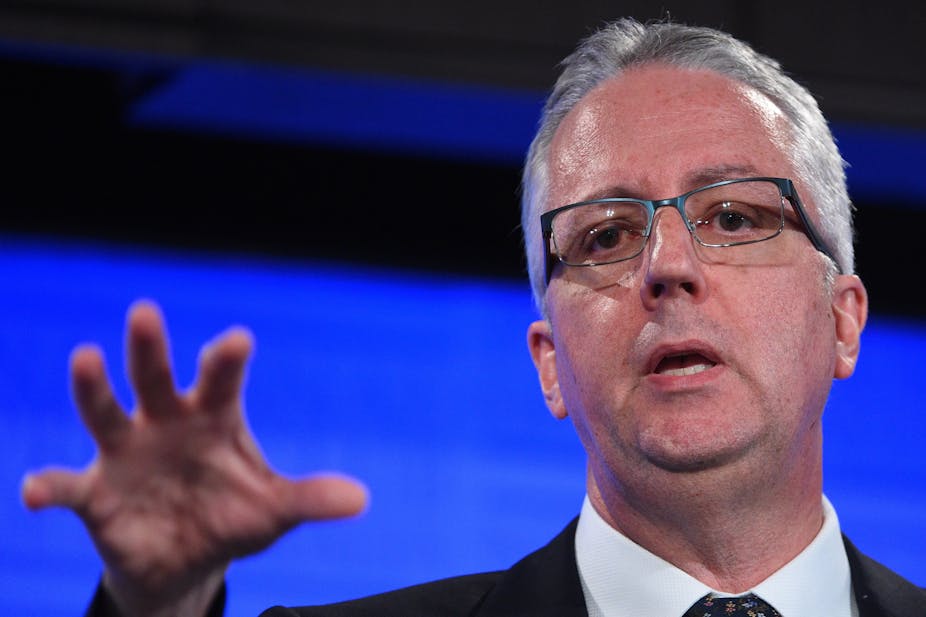ABC managing director Mark Scott’s recent speech to the National Press Club today had the quietly confident tone of a CEO who knows he’s leaving his organisation in broadly better shape than he found it; or that at least he is leaving it in one, reasonably healthy piece. These are turbulent times for all media organisations, and all media executives.
Not that the ABC has in recent times been a “problem” in the sense that its opponents often assert. It was always a lean, mean, public service machine, receiving much less per capita than the BBC, while expected to do the same, rather amazing, kind of thing. In simple terms, its remit is to provide content and culture that is deemed important and valuable to the Australian nation as a whole, including but not restricted to content that the commercial market will not deliver.
The ABC is not a market-failure organisation – and Scott has often emphasised that point – but a publicly owned and managed cultural resource in an increasingly fragmented and chaotic media environment where billionaire barons cannot simply be left to their own devices.
In 30 years the ABC’s share of Australia’s GDP has fallen by two-thirds, yet it regularly attracts public approval ratings in excess of 80% (Newspoll). Scott leaves an ABC not in crisis, or decline, but on the cusp of a digital future in which public service values will be more not less important. As he put it:
A well-funded ABC is one sure bet in an uncertain, unstable media world. It is the way of ensuring that the Australian conversations, culture and stories that shape our sense of Australian identity, are present in the mix. Available free-of-charge in every Australian home.
That this mix includes every sector and niche of the internet should go without saying, but Scott has repeatedly said it anyway, to those who argue that the online market should be left to the Murdochs and Berlusconis of this world, while public service media be allowed to sink into stately decline – rather like vinyl records in the era of Spotify.
Scott has done his bit to keep the ABC both financially viable and culturally valuable as one of the world’s most effective and efficient public service media organisations, leading major digitally driven reforms which have, as one would expect, been controversial but absolutely necessary.
The passing of time demonstrates the fundamental correctness of his digital strategy. However, it will be up to his successor to manage the ABC’s digital consolidation and long-term sustainability in the face of hostility from the private sector.
Scott’s remarks ended with the suggestion that the ABC and SBS should merge, utilising the niche-targeting capabilities of digital platforms to satisfy the needs and demands of what have until now been distinctive – if often overlapping – user groups.
This reminds me of the Channel 4/BBC relationship in the UK, and the issue it raised. In Australian terms, do we really need two public service media organisations in a country of just 20 million-plus, when there are now – because of digital and internet technologies – hundreds if not thousands of channels available for any language, ethnic, religious, professional or lifestyle-oriented niche group we might decide wants it?
The taxpayers and media audiences of Australia will ultimately determine if the political will exists to support both the ABC and SBS into the future. But Scott does no harm by placing the issue so prominently on the agenda. His record gives him a legitimate platform from which to talk about the future of public service media in Australia, and to remind those who support its values not to take the ABC for granted.

